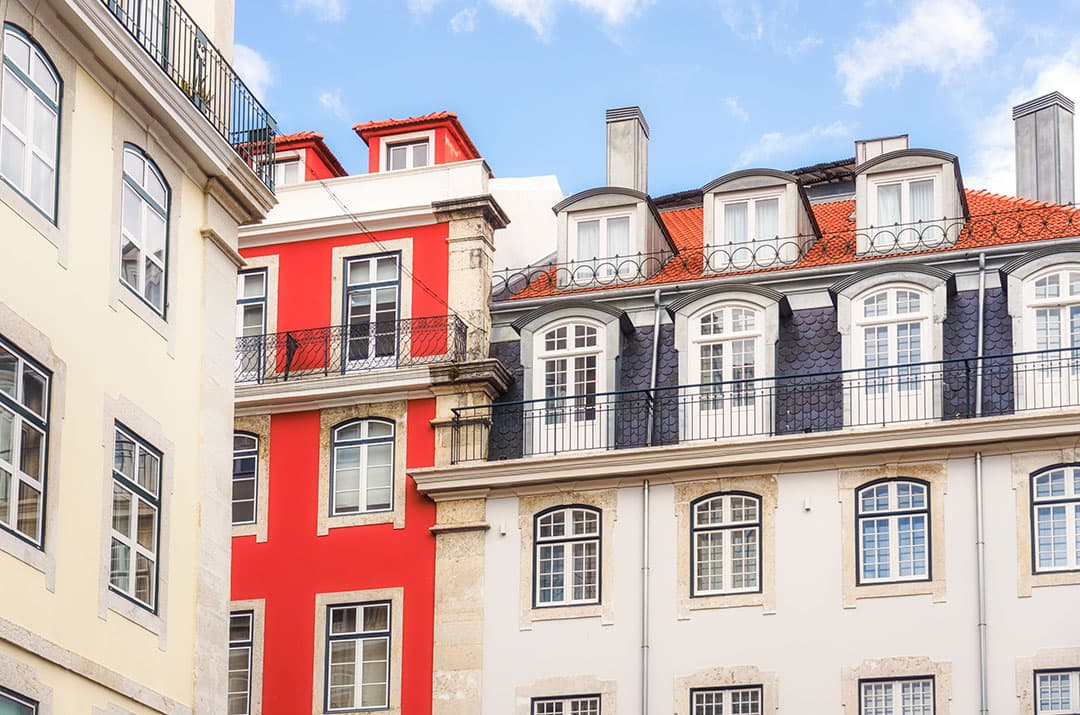- Home
- Blog
- Life Abroad
- A Guide to Making the Right Choice

Portugal Property Investment: A Guide to Making the Right Choice
2023年8月17日 — 7 min read
Portugal, with its captivating landscapes, excellent climate, and rich cultural heritage, has become a magnet for global investors. The steady return on property investment, coupled with the country's continued growing popularity as a tourist destination, has led to an unyielding demand for properties in Portugal.
Why Invest in Portugal's Real Estate?
There are several compelling reasons to consider investing in real estate in Portugal. The country's year-round warm weather, stunning beaches, and landscapes are just the tip of the iceberg. Portugal also boasts world-class golf courses, a range of shopping opportunities, and numerous yacht marinas. The average rental yield in Portugal is a promising 6 percent, and the country's strict planning permissions keep the demand high by limiting the number of new properties that can be built. Additionally, Portugal's Non-Habitual Residence (NHR) scheme offers generous tax breaks to property owners, allowing reduced tax rates for up to ten years if structured correctly.
Understanding Property Prices in Portugal
Despite the global pandemic and its economic consequences, property prices in Portugal have continued to increase in recent years. The average price per square meter in Portugal will vary depending on where you buy, with higher prices in Lisbon and the Algarve due to their popularity among foreign buyers. In 2022, the average asking price for property in the Lisbon Metropolitan was €4,250 per square meter, while in the Algarve, this figure stood at €3,660. Note that in most other parts of the country, the price will be considerably lower than this.
Navigating the Property Buying Process in Portugal
Buying property in Portugal may seem daunting, especially for foreigners unfamiliar with the market. It's advisable to enlist the help of professionals to ensure a smooth and successful property purchase. A property buyer´s agent can provide localized knowledge, advise on best practices surrounding asking prices, and assist in making an offer and negotiating the best price on your behalf.
Choosing the Right Location in Portugal Investment Property
Portugal offers a diverse range of locations for property investment. Each region has its unique charm and potential for investment. Here are some of the main regions to consider:
Lisbon
As the bustling capital city, Lisbon offers a vibrant urban lifestyle with its stunning architecture, fantastic restaurants, and shopping destinations. The demand for rentals is high in Lisbon, making it an attractive location for property investment.
The Algarve
Known for its sunny weather, pristine beaches, and world-class golf courses, the Algarve is a popular destination for tourists and retirees. The region offers luxury properties and a high-standard of living, making it an excellent choice for property investment.
Porto
This city offers a quieter pace of life compared to Lisbon but is equally rich in culture and history. Porto's real estate market is growing, offering opportunities for investors looking for a less bustling city to invest in.
Central Portugal
Regions like Coimbra, Santarém, and Torres Vedras offer hidden gems for those looking for a quieter place to invest. While it might be harder to find luxury properties in these regions, there's certainly the option of getting exceptional value for money in these areas.
Alentejo
Often considered the best region to get away from city life, particularly for the local Portuguese people, the Alentejo offers stunning natural beaches and landscapes. While it's more off the beaten track and generally has fewer luxury real estate options, it's a region worth considering for those looking for a peaceful and natural environment.
Choosing the right location depends on your investment goals, lifestyle preferences, and budget. Each region offers unique opportunities and challenges, so it's important to conduct thorough research and seek advice from real estate professionals.
The Property Buying Process in Portugal
When it comes to buying investment property in Portugal, it's essential to understand the process to ensure a smooth and successful purchase. Here's a step-by-step guide to help you navigate the process:
1. Establish your budget
Before you start looking for property for sale in Portugal, it's important to determine your budget. Consider how much you're willing to invest and how you will finance the property. Many Portuguese banks offer mortgages for foreigners. However, it is important to take some time to determine which one offers the best deal for you based on your requirements.
2. Decide on the type and location of the property
Consider what type of property you want and its location. Whether you're looking for a newly built property or a used home, a property in the city center or by the sea, Portugal offers a wide range of options. Take your time to explore different properties, speak to other owners, and gather as much information as possible.
3. Select the seller
The negotiation and purchase process can vary depending on the seller. Regardless of whether you're buying from a private seller, real estate agent, developer, or bank, it's important to carefully select who to buy from.
4. Make your offer
Once you've found a Portugal property for sale you're interested in, it's time to make an offer. It's advisable to check the land registry for relevant data on the property and adjust your offer price accordingly. Working with a buyer’s agent can help you with this step, as they'll be able to negotiate the best possible price on your behalf.
5. Secure the funding
Ensure that your funding is in place before proceeding with the purchase. This could involve a one-off payment, a mortgage loan, or mortgage subrogation.
6. Sign the pre-sale contract
The pre-sale contract, known as the Contrato de Promessa de Compra e Venda in Portuguese, is usually the first contract you sign when buying a property in Portugal. It secures the rights of all parties involved. When signing, the buyer usually has to pay up to 10 percent of the purchase price as a deposit
7. Sign the deed of purchase
The final step is signing the deed of purchase, where the buyer and seller declare their intention to sell the property to a notary. The conditions of sale are also specified. The purchase deed must include a description of the property, any accrued debts, the agreed sales price, the method of payment, the applicable taxes, and the distribution of the incidental purchase costs.
8. Understand the purchase costs and taxes
The main costs involved in buying a property in Portugal are property transfer tax (Imposto Municipal Sobre Transmissão Onerosa de Imóveis – IMT), Stamp Duty (Imposto do Selo – IS) and VAT, notary fees, land registry fees, brokerage fees and the conclusion costs associated with financing.
9. Choose who to buy with
You can choose to buy with a buyer’s agent or a realtor. While they have similar jobs, they are held to different standards. A buyer’s agent will work solely on behalf of the buyer, ensuring the best possible price for the property.
In conclusion, Portugal's real estate market offers a wealth of opportunities for investors. With its affordable property prices, consistent market growth, and appealing tax benefits, Portugal stands out as an excellent choice for those looking to diversify their property portfolio abroad.
However, it's crucial to remember that buying property in Portugal is a substantial investment. Therefore, conducting thorough research and seeking advice from real estate professionals is highly recommended to ensure a successful investment.
Sign up with Xe now to experience the benefits of our money transfer service and sending large sums of money overseas. With Xe, you can send money with confidence and convenience.
The content within this blog post is not intended for use as financial advice. This content is for informational purposes only
Related Posts

2025年3月5日 — 6 min read

2024年11月4日 — 5 min read


2024年7月17日 — 4 min read

2023年8月17日 — 7 min read

2023年8月17日 — 8 min read